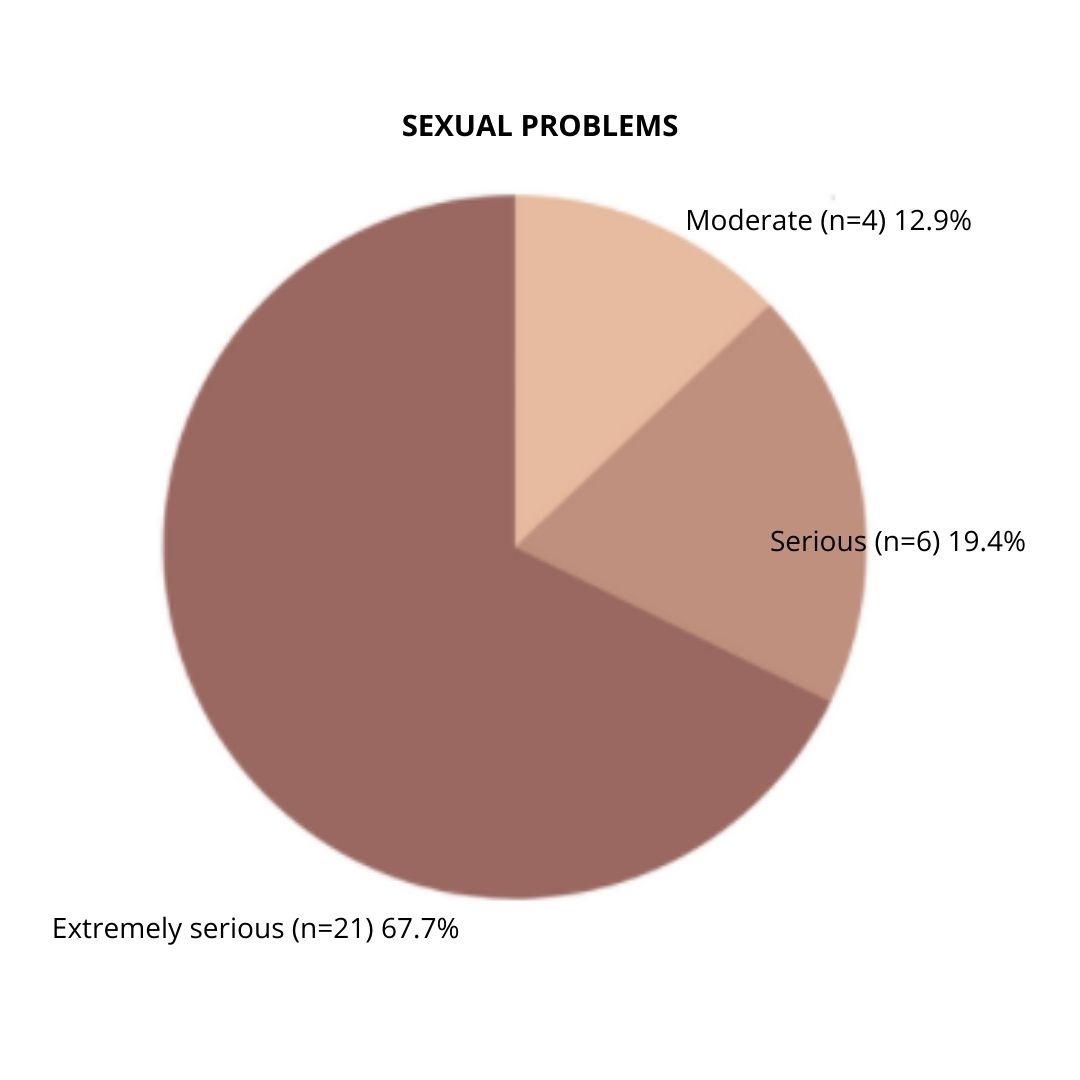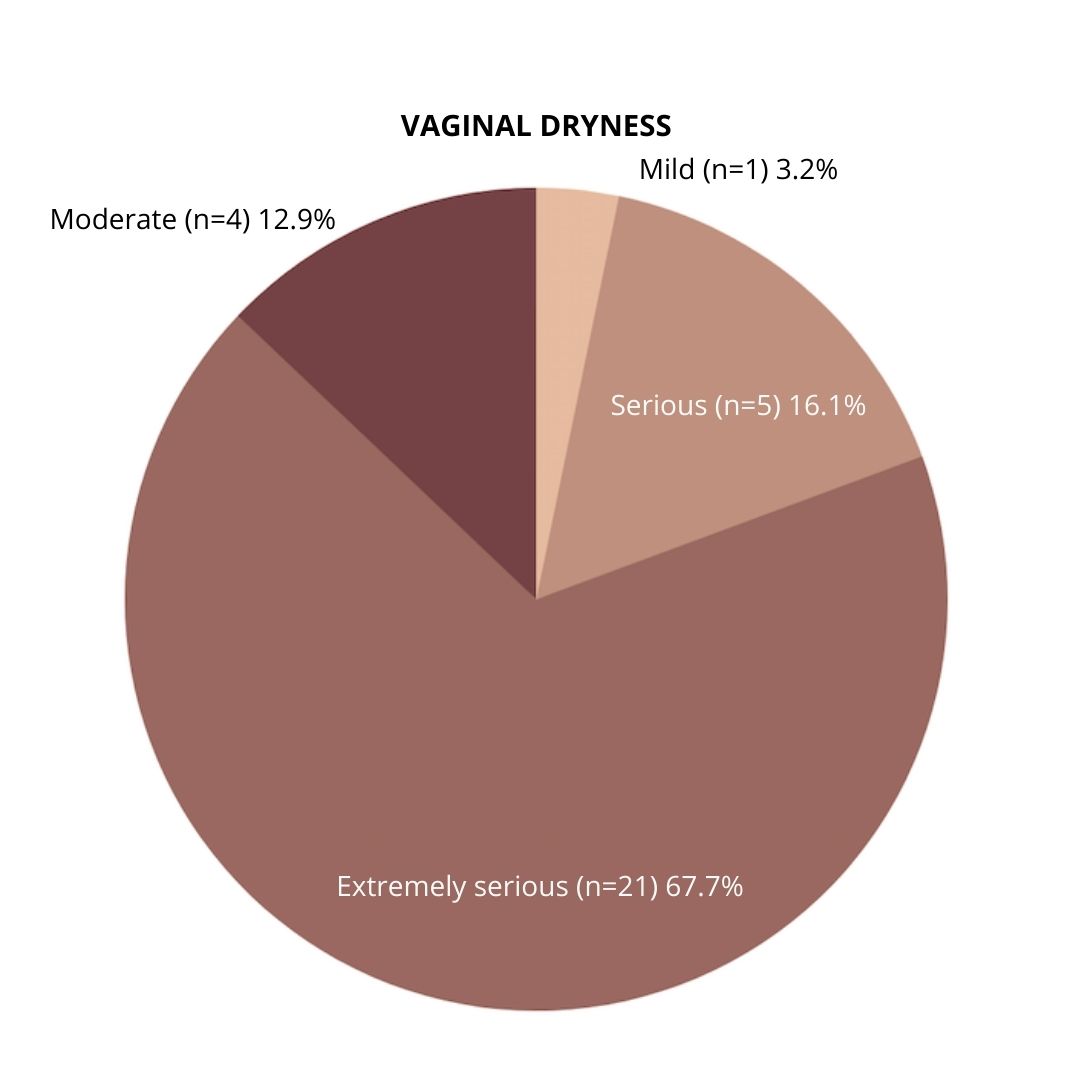13 patients were diagnosed with breast cancer and 18 had cervical cancer. Most of the
patients (87.1%) referred serious or extremely serious sexual problems (change in
sexual desire, in sexual activity and satisfaction), 61.3% marked bladder problems,
(difficulty in urinating, increased need to urinate, bladder incontinence) and 83.8%
complained about dryness of vagina (sensation of dryness or burning in the vagina,
difficulty with sexual intercourse). Classified by different treatments received, 100% of
the patients who underwent pelvic surgery and 100% of patients treated with pelvic
radiotherapy +/- brachytherapy indicated "extremely severe" in the presence of vaginal
dryness, compared to 73.7% of the patients who received chemotherapy, and only
33.3% of breast cancer patients treated with exclusive hormonal therapy.

